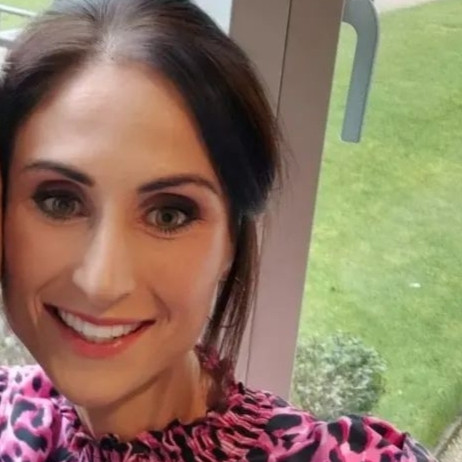Reflections on Recovery: The Long Winding Road
As the year ends and we approach another, reflection is important. Not only to reflect on how the past year went but to set our intention and goals for the year ahead. As for most people all years are full of highs and lows but life with an eating disorder brings very different daily and persistent challenges.
I am forever thankful for my eating disorder (sounds weird I know!). Don’t get me wrong, having an eating disorder is hell and life without it would be so much easier. However, it has also made me the person I am.
I first developed disordered eating behaviours when I was around 10 years old and was officially diagnosed as ‘anorexic’ at 11. I remember my mum’s distress on hearing the news but at the time it meant nothing to me and I struggled to understand her grief.
‘Sure, it’s only a label.’
‘There’s nothing wrong with me anyway!!’
Naivety was bliss! If only I knew what lay ahead. Shortly after my diagnosis I was admitted to Antrim Area Hospital children’s ward. I stayed there for 4 months, with very occasional stays at home. Unbeknown to me, you can only be in the children’s ward until age 14 so when I had my 14th birthday in the children’s ward I was, unfortunately, placed in a wheelchair and wheeled to the adult’s ward.
The adult ward, in fact, ‘geriatric’ ward was truly horrific. I can remember the smells and the old people screaming at me, clearly ‘senile’. I didn’t fit in here and was adamant I wouldn’t be staying.
Despite repeated attempts by medical staff to put the cot sides up on the bed to contain me and dad being told I had a matter of weeks to live, he brought me home unable to see me suffer in this way there. Unfortunately, it wasn’t long until I was admitted to Holywell hospital and this admission and stay was horrific.
Holywell hospital was a ‘psychiatric’ hospital and I had no preparation before my stay. I had gone for a regular check up with my mum to the GP where my mum was told to go home immediately and gather an overnight bag and head straight to Holywell. Again, as a 15-year-old child this was horrific.
I was terrified about what lay ahead, made worse by the fact I still couldn’t recognise I had a problem and needed medical care.
I can vividly remember my arrival to Holywell. It was dark and miserable. The ward was dreary and silent. The staff, albeit very friendly, greeted me at the door and brought me to my room. I was lucky enough to have my own room in the female ward, but I was on constant bed rest and bed watch. This meant I couldn’t leave my bed and had a nurse supervising me at all times. 24/7, even when I was sleeping!
This level of control was very hard to manage. I had lost any form of independence and freedom. My life had literally been taken away from me. I had to repeat a year at school, I couldn’t see my friends and any family visits were rare and seen as a ‘treat’. My 8 months in Holywell involved staring at 4 white walls, confined to my bed. On the odd occasion I read a book or magazine but that was the excitement of my day. The purpose was simply rest and food. To some it might sound bliss, but as a 15-year-old child who was terrified of food and had persistent fears about getting fat, this was truly horrific.
I had no control over what or when I ate. I was forced to sit until I finished every drop of every meal and was watched doing so. I can remember the ill feeling when I first saw them bring out chocolate cake and custard. ‘I mean you do not expect me to eat that!!!’ Of course they did!! This was on top of buildup drinks and literally zero movement. I even had to pee in a canister from my bed. I truly didn’t think life could get any worse.
Fortunately for me, however, being so ill and suffering from a mental health condition had severely affected my mind. I had no desire for life anyway. I had lost any sense of character and personality and this ‘numbness’ enabled me to manage the experience. The more time passed, in some ways the hospital became a place of comfort and safety.
On my first trip out for the day with mum, I can remember the drive home to Parkgate. It felt scary being outside again. I remember wondering where people were going. I forgot people had a life outside the hospital. The fresh air was strange and ‘normality’ felt unfamiliar. I had become institutionalised and getting out didn’t even seem like a reward.
After gaining the required weight and meeting the minimum BMI requirements, I was finally discharged. This was a day of very mixed emotions. I was excited to get out but also scared about what the real world involved and how I would adjust to home life.
Would I slip back? How would I cope at home? What about school? What will I tell my friends? Will they all think I’m a weirdo??
Having to repeat a year in school brought further adjustments to my life. I really didn’t want to go back to my High School. Despite enjoying my junior years (on the limited days I was there), I didn’t want to go back to a place where people knew me and associated me as the ‘sick girl’. I was encouraged, however, to go back to the same school for consistency so despite my wishes I returned and repeated the year.
Going into the year below me was hard. I was old in my original year anyway with an August birthday. Yet again. I felt like the odd one. I don’t fit here. Everyone knows I had to repeat. How will I explain this to others?
Thankfully, the adjustment, despite my initial fears went much more smoothly and successfully than I could ever have imagined. After a few hard months initially, I integrated perfectly. Met a great new bunch of friends and was supported along the way. I made friends who, even now at the age of 32, have remained in my life and stood by me throughout. I am forever thankful for every single one!!
Despite my disrupted years in junior school, I managed to remain in education and successfully completed 10 GCSE’S and 3 A levels. I then went onto University to study Law and graduated in 2013 with a 2.2 Honors. I am forever proud of myself for achieving this despite my very disrupted adolescent years. I went on to study social work and now working in civil service.
I completely understand the challenge of maintaining a job while battling an eating disorder. For most it so hard to imagine the extent to which an eating disorder consumes your life. It affects you physically, these signs which are much easier for others to understand. Weak bones, emaciated stature, lack of menstrual cycle, stunted growth, organ failure, to name just a few.
Mentally however the challenges are every bit as monumental and much harder to diagnose. Not only does it affect your concentration and mood but it affects your ability to focus, to be content and to manage sometimes even the simplest task. Many with eating disorders feel easily overwhelmed, value routine and anything outside of these boundaries is very hard to manage.
As life throws constant challenges and circumstances out of the norm, the daily struggle to manage to ‘survive’ never ends. A lot of the battles are unseen.
What about social events? Oh no what will I eat at a meal? If I don’t go, I’ll look weird?? Food is essential for life and affects our lives daily. It is the one thing that can’t be avoided yet for eating disorder sufferers it’s the one area they want to avoid or struggle to manage.
Although considered a ‘severe enduring eating disorder sufferer’ having suffered for 20 years, I am now at a stage where I am managing well. I fight my battles daily, it is never easy and the challenge never ends. There is never a day where managing food isn’t on my mind and my daily reminder to eat enough is real.
However, I am thankful for supportive family, friends and recent fiancée who have supported me on my journey and daily battles. For all sufferers, support is essential! Whether it be one person or collective groups, it is essential we don’t try to manage alone. For a lot of sufferers, independence and being in control is so important however like any illness, it is important we can take comfort and guidance from others.
Accepting our struggle is hard and I personally felt this in 2020. I knew my body was failing but my mind refused to accept it. It was only for my manager in work at the time who took me to the side and asked if I was ok that I was able to admit I was struggling. He sent me home from work and advised me to rest. It was during this rest time that I realized I needed help. My hair was falling out, legs swelling and I was struggling to walk up the stairs.
My sister was thankfully looking after me at the time and one day I picked up the courage to ask her to bring me to hospital. We arrived at A&E and after one look at me the doctors assured me I wouldn’t be going anywhere and was admitted to a bed in the Ulster hospital for a 3-week stay. I am so thankful for the intervention and support I received from the medical staff. After several tests they diagnosed thyroid problems, low salt levels and osteoporosis. Thankfully they prescribed the appropriate medication and managed to restore my health.
Although I continue to battle this demon illness daily and wouldn’t wish it on anyone, I am forever grateful for my struggles and experiences. They have given me a greater appreciation of life, even for the simplest things like fresh air and nature.
Despite suffering from thyroid problems and osteoporosis and amenorrhea, I am very grateful to be as well as I am. Over the years my management skills and understanding of the illness have grown. I have developed a much healthier mind and body and attitude towards food. I am finally learning to love myself and be grateful for all I have achieved and to still be here to tell the tale.
I really hope this inspires others to never give up. Even on the toughest days there is always hope. We may never be illness free but every day will and does get better if you work on yourself. Your health is your wealth and maintaining a positive attitude is key! Never feel alone as there are so many out there to support you.
I have personally found the eating disorders counselling service very beneficial, even if it’s just a thirty-minute weekly call, having someone to share with and who understands can be so beneficial. Keep going! You got this!! We may never experience life illness free but that doesn’t mean we can’t improve.
‘Mental health is not a destination but a process. It’s about how you drive not where you are going!’



